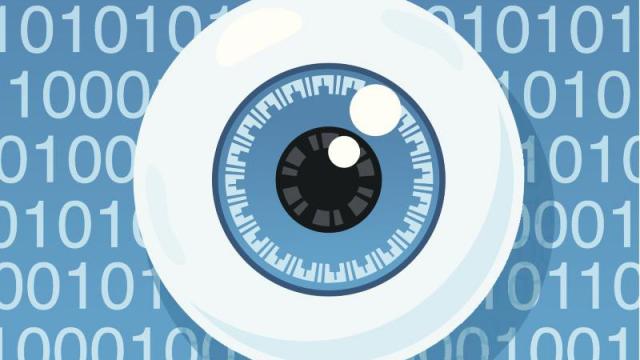
The Senate’s Republican leadership has convinced itself that the revelations of former National Security Agency contractor Edward Snowden were just a bad dream. Last week Senate Majority Leader Mitch McConnell and the chairman of the Senate’s powerful Intelligence Committee, Richard Burr, R-N.C., introduced a bill that would extend the NSA’s program to amass a database of Americans’ telephone records for five years.
Unlike the numerous bills that have been introduced since Snowden disclosed this operation, the McConnell-Burr measure makes no effort to address the bipartisan concerns raised by policymakers and experts.
Shortly after the 9/11 attacks, Congress passed the Patriot Act, vastly expanding the intelligence community’s powers. Recognizing that such hastily passed emergency authorities might not be appropriate for all time, lawmakers included what’s known as sunsets: The most controversial provisions of the Patriot Act lapsed after a certain time unless lawmakers reauthorized them. These have been reauthorized several times, with just a few modest fixes. But Congress was sufficiently wary not to put these authorizations on a permanent footing.
In just about a month, one of the most controversial parts of the Patriot Act — Section 215, which permits the government to collect business records relevant to terrorism investigations — is set to expire. The NSA uses a distorted reading of Section 215 to justify collecting information about millions of Americans who have no link to terrorism whatsoever and without the procedural safeguard of anything resembling a warrant. This is the provision that McConnell and Burr want to extend.
The theory is that collecting phone records allows the government to discover previously unknown terrorist networks. This notion has been thoroughly discredited.
The administration initially argued that the program helped prevent 12 terrorism incidents, but it was quickly forced to retreat. It turns out that over seven years, this massive database yielded only one success: catching a Somali taxi driver who was trying to send $8,500 to the Somali group Al-Shabab. The president’s handpicked review group — which was stacked with retired intelligence officials — concluded that information obtained from the Section 215 database “was not essential to preventing attacks” and could be obtained quickly through other means.
So did the Privacy and Civil Liberties Oversight Board, an independent watchdog panel established by Congress to review counterterrorism laws. In the face of indisputable facts, even the intelligence community came around to the view that this database was unnecessary and supported a reform effort late last year.
Maintaining a database of phone records upends a fundamental premise of the Constitution: The government should intrude on Americans’ private lives only if it has probable cause to suspect criminal activity. While the database doesn’t include recordings of actual conversations, it picks up reams of information about who we call and when.
This can be even more revealing of our lives. Calls to the National Rifle Association and the local shooting range show that someone may be a gun owner. Calls to a suicide prevention hotline may tell the government more than it has any right to know about a person’s mental health. Political associations and personal ties are easily revealed.
The rationale for the telephone database can be used to collect other types of information as well. The NSA ran an Internet metadata program until 2011 and could well revive it without the public knowing. As we conduct more and more of our lives online, this could allow the government to stockpile information about who we email, which websites we visit and the books and medicines we buy online.
Even agencies not concerned with national security are warehousing information. It was recently revealed that for more than two decades starting in 1992, the Drug Enforcement Administration logged virtually all phone calls made from the United States to 116 countries. The people whose calls to family, friends and business associates were picked up weren’t suspected of any crime, and no court was asked for approval.
Americans understand the risks these programs pose to their privacy. Several polls have been conducted to gauge people’s attitudes about electronic surveillance. While the results vary somewhat, the clear trend in the last two years is that the public is increasingly uneasy about digital intrusions of unprecedented scale.
The United States faces a range of threats, and intelligence and law enforcement agencies should have the tools to face them. But such tools should be effective and constitutional. The phone records program being pushed by the Senate leadership is neither. Instead of wasting the limited time left before Congress goes on recess, McConnell and Burr should be working to fix the Patriot Act, not blindly endorse it.
Faiza Patel is a co-director of the liberty and national security program at the Brennan Center for Justice at NYU Law School.
3 WAYS TO SHOW YOUR SUPPORT
- Log in to post comments













